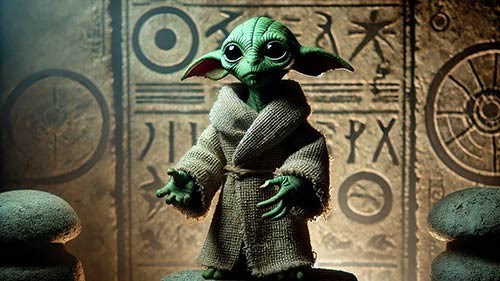Robert Smith is convinced the aliens have won.
“The invasion has happened – it’s all over,” says the University of Alberta space historian who teaches a course on the history of extraterrestrials.
It’s not so much that Smith believes in their literal existence, only that aliens have staked their claim in the human imagination.
“Look at the TV listings on any given night, and it’s clear they are everywhere,” he says. “The number of programs with extraterrestrials is striking.”
Just last month the seventh film of the Alien franchise, Alien Romulus, was released in theatres worldwide. The series has gripped the collective imagination since 1979 and shows no signs of slowing down. Romulus has grossed more than $225 million worldwide so far, making it the third-highest-grossing film in the series.
When he isn’t tracking every detail of the , launched in December of 2021, for an upcoming book on the subject, Smith is reviewing his notes for a senior seminar called “The History of the Extraterrestrial Life Debate.” According to him, it’s the only course in the world that probes “the existence, nature and possible significance of extraterrestrial life from the ancient world to today.”
Smith contends aliens have been invading our imagination at least since the ancients. The Greek philosopher Epicurus – who first came up with the idea that the universe is made up of atoms – speculated about other worlds, as did the Roman poet Lucretius.
In the second century CE, Lucian of Samosata wrote what is considered the first work of science fiction, a satire called about inhabitants of the sun and the moon fighting over the colonization of Venus.
“There’s always been this fascination with what you could call the other, often very similar to us but sometimes different or even wildly different,” says Smith.
“The extraterrestrial becomes a kind of mirror, and by trying to understand how people see extraterrestrials, we’re also learning about what people think it is to be human.”
Even the Catholic Church of the Middle Ages considered the possibility of aliens as a manifestation of God’s power, says Smith.
“If you attended a medieval university … one of the topics you would likely have examined would have been other worlds because if you said there were no other worlds, it was regarded as limiting God’s power.”
The popular fascination with aliens took off with the publication of , by French author Bernard le Bovier de Fontenelle in 1686, says Smith. Considered the first scientific blockbuster in publishing history, many people read it at the time and it is still in print today after almost 100 editions.
Considered one of the first major works of the Enlightenment, it was partly inspired by Copernicus’ revolutionary discovery that Earth revolved around the sun, rather than the other way around. That shift in cosmology allowed for the possibility of other solar systems and, therefore, other worlds.
By the 18th century, “The great majority of educated people probably believed in life on other worlds,” says Smith.
The popularity of Conversations and the idea of extraterrestrial life increased well into the 19th century, fuelling a hot debate between two major intellects of the age – scientist David Brewster and Anglican minister and philosopher of science William Whewell. That debate “spawned a huge body of literature,” says Smith, including perhaps the most famous alien invasion tale of all time: H.G. Wells’ 1897 , which left its indelible mark well into the 20th century.
Wells’ novel was widely seen as reflecting anxiety over British imperialism. The author once said he wrote the story with his brother about the brutal British colonization of Tasmania; he wondered what would happen if Martians treated England the same way.
War of the Worlds tapped into a fundamental human fear, famously manifested when the 1938 CBS Radio version narrated by reportedly caused panic among some listeners who didn’t realize it was fiction.
For the most part, says Smith, interest in aliens dropped off slightly in the first half of the 20th century as astronomers surmised that solar systems were relatively rare. But the mania reappeared with the space race of the late 1950s and early 1960s.
“As soon as we sent a spacecraft into space, we were thinking about the implications of that,” says Smith. “Remember, the Americans actually celebrated their bicentennial in part by looking for life on Mars (with the launch of Viking 1 in 1976).”
Since then, interest in aliens has been relentless and pervasive, with a flood of movies attesting to our fascination with all things extraterrestrial, from Invasion of the Body Snatchers, Star Trek and 2001: A Space Odyssey to Alien, Close Encounters of the Third Kind, The X-Files and Dr. Who. And that barely scratches the surface.
After taking the long view, does Smith believe in the existence of extraterrestrials?
He prefers to defer to the great science fiction writer Arthur C. Clarke.
“Two possibilities exist: Either we are alone in the universe or we are not. Both are equally terrifying.”
| By Geoff MacMaster
This article was submitted by the University of Alberta, a Troy Media Editorial Content Provider Partner.
©
The commentaries offered on Â鶹´«Ã½ are intended to provide thought-provoking material for our readers. The opinions expressed are those of the authors. Contributors' articles or letters do not necessarily reflect the opinion of any Â鶹´«Ã½ staff.




